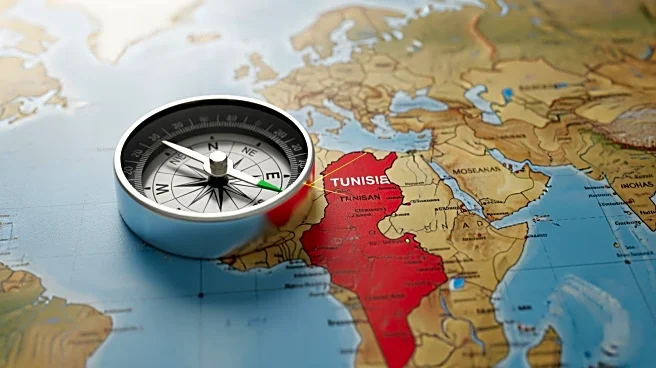What's Happening?
Tunisia has repatriated approximately 10,000 irregular migrants this year, primarily from sub-Saharan Africa, as part of a voluntary repatriation program in collaboration with the International Organisation
for Migration (IOM). This initiative comes amid increasing pressure from the European Union to reduce Mediterranean crossings. Foreign Minister Mohamed Ali Nafti emphasized Tunisia's stance against becoming a transit zone for migration to Europe. The country has intensified maritime security measures, including deploying more patrols and enhancing coastal surveillance, to curb irregular crossings. Tunisia has historically been a key departure point for migrants attempting to reach Italy's Lampedusa Island.
Why It's Important?
Tunisia's actions reflect broader regional dynamics concerning migration and border security. The country's refusal to serve as a transit zone for migrants to Europe highlights tensions between North African nations and the EU regarding migration policies. This development could impact EU-Tunisia relations and influence migration patterns across the Mediterranean. The repatriation program and increased border controls may alleviate some pressure on European countries dealing with migrant influxes, but it also raises humanitarian concerns about the conditions faced by migrants stranded in Tunisia.
What's Next?
Tunisia plans to continue repatriating migrants until the migration phenomenon is eliminated, according to official data. The country may face further diplomatic negotiations with the EU regarding migration management and border security. Additionally, Tunisia's internal policies and international partnerships, such as those with the IOM, will likely evolve to address ongoing migration challenges. The situation may prompt discussions on broader regional cooperation to manage migration flows and improve conditions for migrants.










